Illness forced Kim Cattrall to withdraw from Linda, the Royal Court’s new show, and Noma Dumezweni scooped up the debris at the last minute. And what debris. All thoughts of kittenish Cattrall evaporated as Dumezweni strode on to the stage, a luscious blend of high-performance hair and trouser-suited luminosity. Linda is in her prime, at 55, a marketing director at a beauty firm, but she faces problems at home. Her balding husband, in midlife crisis, has joined a rock band. Her older daughter, Alice, is in deep trauma after internet trolls mocked an explicit clip of her posted by a jealous ex. Linda told Alice to pull herself together but Alice has withdrawn from life and exists like a waspish nun concealing her nubile physique in a grey onesie.
When Linda has an office fling whose shameful details go viral she’s forced to recognise the depth of her daughter’s suffering. And she vows revenge. By an unlikely but just about credible coincidence the chief troll in both cases, Amy, is a rising star at Linda’s firm. Stony-faced Amy hasn’t Linda’s charm or generosity but shares her desire to scale the corporate heights. She’s a blonde Machiavelli in heels, a cleavage that’s going places, a pitiless ego firing ambition through her laser-blue eyes and her double-barrel hooters (brilliant work by Amy Beth Hayes). The women square up like cage fighters in power suits.
The play is not perfect. The title is dreary, the plot sometimes threadbare. Two female characters (dad’s floozie and Linda’s younger daughter) are underwritten and the males don’t feel like people but vessels for masculine weaknesses, vanity, pomposity, infidelity and condescension. The set left me in two minds. It’s a huge complex double-tiered coffee-table arrangement with the levels connected by spiral staircases. Impressively chic but it makes no secret of its desire to upstage the script. Anyway forget these quibbles. The show has a brace of must-see moments. At the close of act one Linda goes off-message during a product launch and stages a wondrously sardonic attack on her colleagues in the face-grease industry. Mentally, I was roaring and cheering as she lacerated her brain-dead office mates. Act two peaks with Linda hunting Amy down at work and meting out a dose of street justice that exorcises her daughter’s pain and her own. Again, in my head, I was urging her to sock it to Amy, but not for Linda’s sake or for her daughter’s. For my own. It’s rare to find these moments of transcendence in the theatre. A shocking but uplifting awareness of communal passion grips the auditorium. The crowd, united in emotional fellowship, feels exactly the same degree of euphoria in exactly the same instant. It’s why people go to football matches. One such climax will make a play a success. Two will make it a hit. If it transfers, the Cattrall question may resurface. Were this Hollywood she’d be in and Dumezweni out. But the theatre is a gentle, superstitious organism and the producers will be loath to dismantle this winning team.
Barbarians began with a nasty prank. As we took our seats in the Young Vic the cast of three skinheads roamed the space pretending to be ‘in character’, walloping the flats with their boots, staring aggressively at new arrivals and pushing their jowly mugs into the faces of seated play-goers. One actor stood on a platform beside a lone female and crudely pumped his pelvis a few inches above her head. There are better ways to express your fear of the audience than by sexually intimidating an unaccompanied woman. The play, happily, is a marvel from the mid-1970s. Three London factory workers form a gang and commit petty crimes to top up their earnings. They travel to Wembley to see the cup final but, when their team loses, their friendship sours. A knife is pulled. The second half catches up with them a few years later. One is a soldier fearful of an upcoming tour of Ulster, one runs his own business and the third, the gang leader, is stuck in the factory rut and nursing an eye injury that will forever thwart his ambitions. The dénouement is a brutal act of violence that explains how hatred and love are close neighbours in the minds of adolescent males. What a beautiful play. The structure is elegant and invisible. The pace and the escalation are marvellously orchestrated and the plot is full of artful surprises. Liz Stevenson’s staging is spare to the point of thriftiness but highly effective. A pity that two of the cast (the ones who intimidated the audience more enthusiastically) are wooden and over-demonstrative. The one who refrained from bullying us, Fisayo Akinade, is excellent. I suspect these details are related.
Got something to add? Join the discussion and comment below.
Get 10 issues for just $10
Subscribe to The Spectator Australia today for the next 10 magazine issues, plus full online access, for just $10.

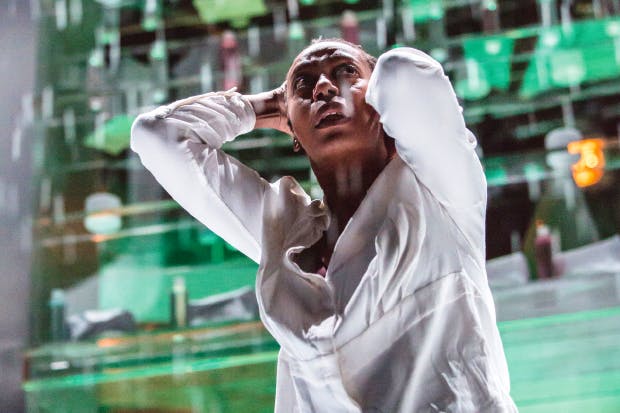


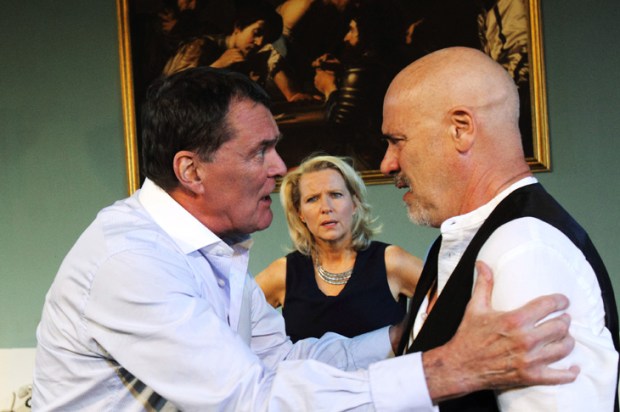
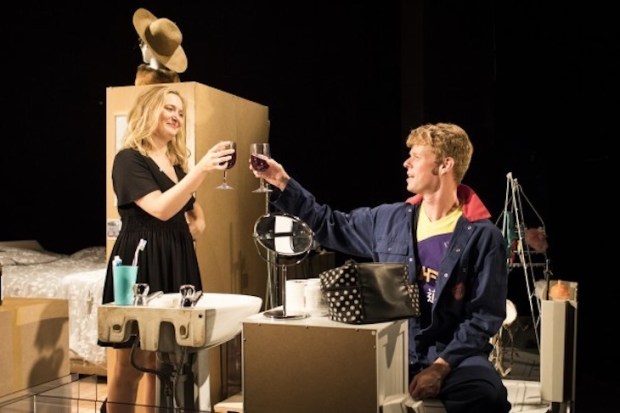
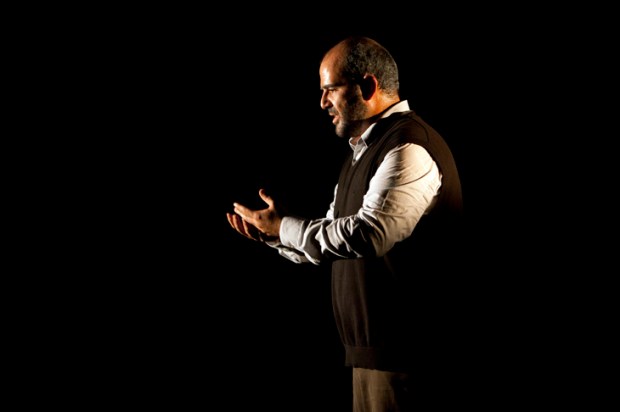
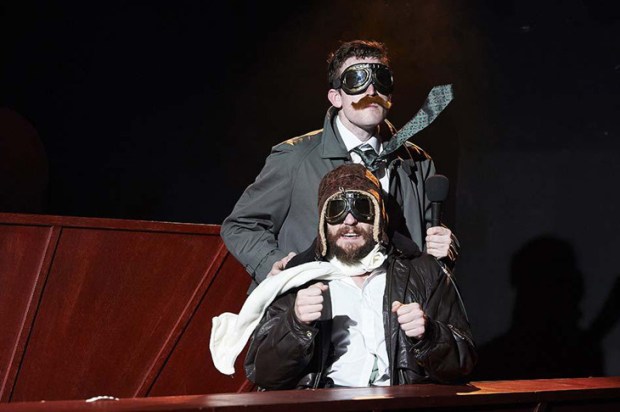






Comments
Don't miss out
Join the conversation with other Spectator Australia readers. Subscribe to leave a comment.
SUBSCRIBEAlready a subscriber? Log in